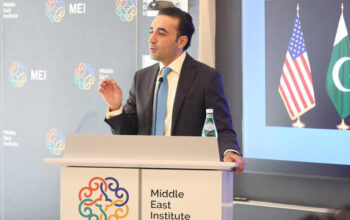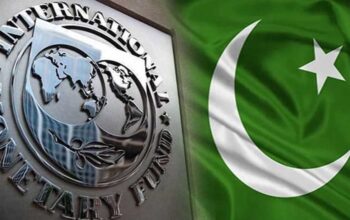By Staff Reporter
ISLAMABAD: Pakistan has secured key positions in the United Nations Security Council, becoming vice chair of the Counter-Terrorism Committee and head of the committee overseeing sanctions on the Afghan Taliban, the country’s mission to the UN said on Wednesday.
The appointments come as Pakistan begins its two-year term as a non-permanent member of the UNSC, a position it assumed on January 1, 2025, marking its eighth stint on the council. Pakistan, elected in June to replace Japan for one of the two Asia-Pacific seats, will also preside over the council in July 2025, gaining a platform to steer discussions on pressing global issues.
The Counter-Terrorism Committee, established by UNSC resolution 1373 on September 28, 2001, in response to the September 11 terrorist attacks in the United States, includes all 15 council members. It is tasked with monitoring how countries implement measures to strengthen their legal and institutional frameworks to combat terrorism at home and abroad. As vice chair, Pakistan will play a central role in advancing these efforts.
At the same time, Pakistan has been named head of the committee established under resolution 1988 (2011), which oversees sanctions targeting the Afghan Taliban. This position places Pakistan at the heart of international efforts to address security challenges tied to Afghanistan.
The Pakistan Mission to the UN described the appointments as a “significant diplomatic development.” The mission also noted that Pakistan has been tapped as co-chair of two informal working groups within the UNSC: the Informal Working Group on Documentation and Working Methods, which focuses on improving the council’s transparency, efficiency, and inclusiveness, and the newly established Informal Working Group on Sanctions, aimed at reviewing and enhancing the design, implementation, and effectiveness of UN sanctions regimes.
“These appointments represent an acknowledgement of Pakistan’s active engagement with the United Nations system, including its constructive role as an elected member of the Security Council,” the statement said. “They are also an international recognition of Pakistan’s counter-terrorism efforts.”
Pakistan’s new roles offer it a chance to influence policies on counter-terrorism and sanctions, areas of critical importance amid ongoing security concerns in the region. While the council’s five permanent members—the United States, Russia, China, France, and the United Kingdom—hold veto power, non-permanent members like Pakistan can exert significant sway in terrorism-related sanctions committees, where decisions require consensus.
The country’s tenure on the council arrives at a fraught moment, with escalating tensions in conflict zones such as Gaza, Kashmir, and Syria posing complex challenges. During its presidency in July 2025, Pakistan will have the authority to set the council’s agenda, potentially spotlighting issues that align with its foreign policy goals.
In its statement, the Pakistan Mission emphasised the country’s dedication to the UN’s mission. “Pakistan remained committed to working with the UN and fellow member states in advancing the principles and purposes of the UN Charter as well as playing its part in the global fight against terrorism in collaboration with its international partners,” it said.
Copyright © 2021 Independent Pakistan | All rights reserved




